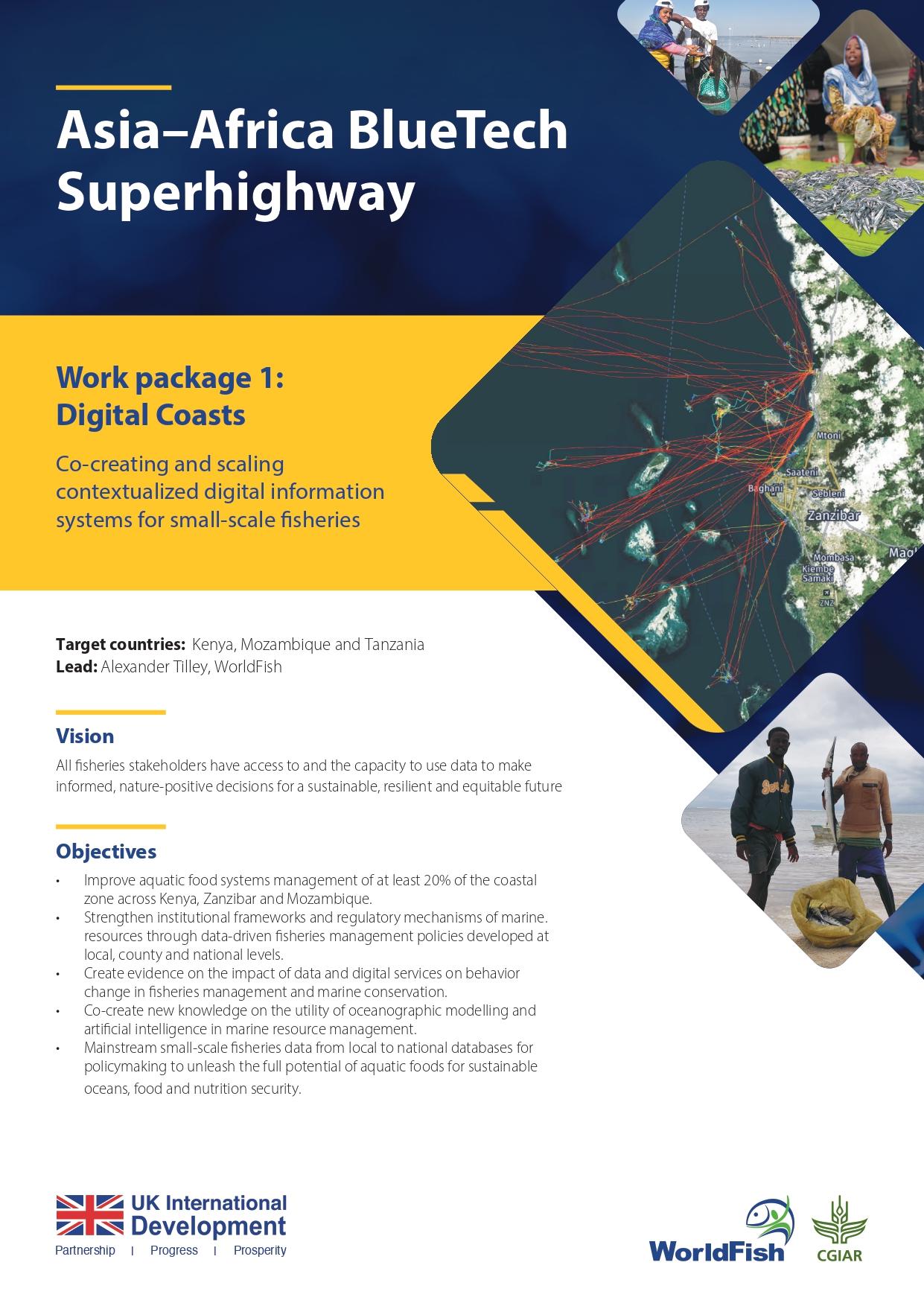Co-creating and scaling contextualized digital information systems for small-scale fisheries
![]()
Vision
All fisheries stakeholders have access to and the capacity to use data to make informed, nature-positive decisions for a sustainable, resilient and equitable future.
Objectives
- Improve aquatic food systems management of at least 20% of the coastal zone across Kenya, Tanzania and Mozambique.
- Strengthen institutional frameworks and regulatory mechanisms through data-driven fisheries management policies developed at local, county and national levels.
- Create evidence on the impact of data and digital services on behavior change in fisheries management and marine conservation.
- Co-create new knowledge on the utility of oceanographic modeling and artificial intelligence in marine resource management.
- Mainstream small-scale fisheries data from local to national databases for policymaking to unleash the full potential of aquatic foods for sustainable oceans and food and nutrition security.
Strategy
To enhance sustainable and inclusive digital fisheries information systems for small-scale fisheries in focal countries, the project will initiate a series of participatory workshops with fishing community representatives, government stakeholders and others, to co-design digital solutions that address specific needs and challenges, while building on existing fisheries knowledge, monitoring systems, data and processes. Leveraging novel data science approaches, customized oceanographic models, and machine learning, the project will create a harmonized open data platform for the Western Indian Ocean region that visualizes fisheries trends and provides near real-time, decision-making guidance that adapts to outcomes over time. In the co-development of systems and research, Digital Coasts will build local capacity for data-driven management toward sustainable fishing practices and maximizing the well-being of coastal communities. Throughout the project, continuous feedback will be sought through planning committees and community consultations to ensure the platform remains responsive to the evolving needs of small-scale fishing communities and fisheries managers.
Partnerships
The success of this area of work relies on collaborations with local and international partners who play a crucial role in improving aquatic food systems.
- Wildlife Conservation Society
- Kenya Marine and Fisheries Research Institute
- Western Indian Ocean Marine Science Association
- Zanzibar Fisheries Resources Research Institute
- The Norwegian University of Science and Technology
- National Fisheries Administration, Mozambique
July 2023–June 2030
Phase 1: 2023-2027
Target Countries:
Kenya
Mozambique
Tanzania
Lead: Alexander Tilley
Phase 2: 2027-2030
